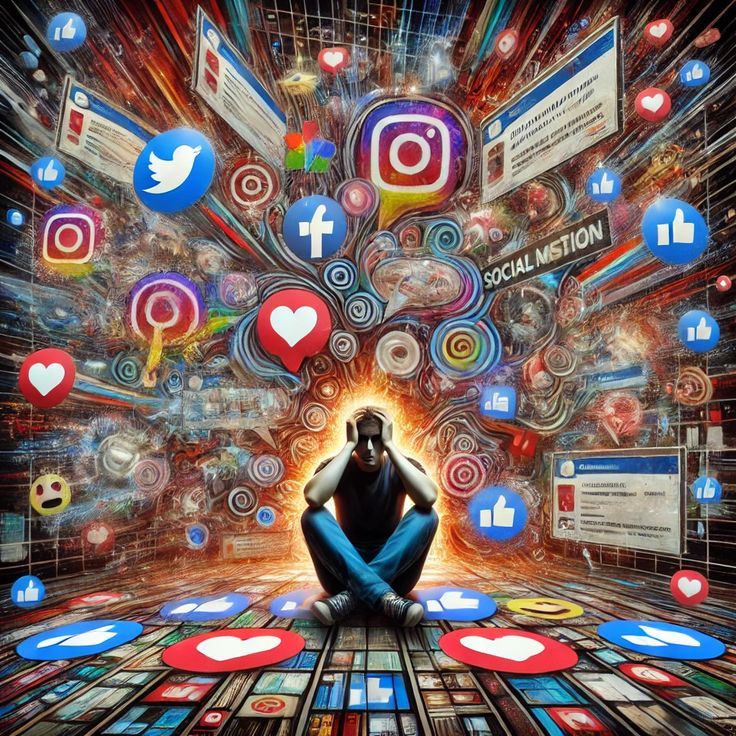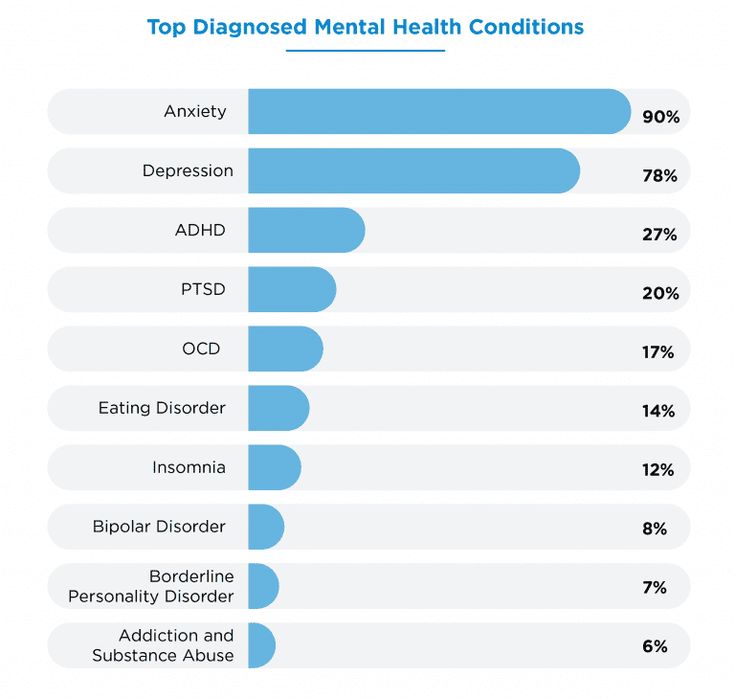“It’s hard to find hope when every step forward feels like two steps back,” says Mia, a 27-year-old marketing professional. Her life, which should be a blend of opportunities and growth, instead feels like a maze of stress, burnout, and mounting pressure.
Surprisingly, Mia’s struggles are not unique. While the term “midlife crisis” was once associated with people in their 40s or 50s, new data reveals that 38% of Gen Z adults—the oldest of whom are still in their late 20s—are experiencing similar feelings of burnout, disillusionment, and anxiety.
This isn’t just a passing phase or a dramatization of everyday stress. For many Gen Zers, these struggles represent a generational crisis. Systemic issues like crushing student debt, stagnant wages, unaffordable housing, and unattainable career aspirations have created an environment where thriving feels impossible.
What led to this collective anxiety among Gen Z? More importantly, how can we break the cycle? Let’s delve deeper into the story of a generation that finds itself caught between lofty expectations and harsh realities.
The Roots of Gen Z’s Struggles
Gen Z was raised during a time of rapid societal and technological changes. As children, they were promised that hard work and education would pave the way for a bright future. However, by the time they reached adulthood, they were met with an entirely different reality.
Economic Turmoil and Financial Insecurity
The Great Recession of 2008, which many Gen Zers witnessed during their formative years, marked a turning point. The economic aftershocks lingered for years, influencing job markets, wages, and financial stability. While their millennial predecessors faced similar challenges, Gen Z entered adulthood during an even more precarious time:
- Rising student loan debt: According to recent statistics, the average Gen Z college graduate owes over $30,000 in student loans.
- Skyrocketing housing costs: Homeownership, a traditional marker of adulthood, feels like a distant dream for most Gen Z adults, with housing prices increasing far faster than wages.
- Gig economy jobs: Instead of stable, full-time employment, many Gen Z workers find themselves in part-time or freelance roles with little job security.
Jake, a 26-year-old graphic designer, puts it bluntly: “I thought college would be my ticket to success. Instead, I’m drowning in debt and barely keeping up with rent. It feels like there’s no way out.”

The Impact of Social Media Perfectionism
Unlike previous generations, Gen Z grew up with social media. Platforms like Instagram, TikTok, and LinkedIn create constant comparisons, where it seems like everyone else is living their best life.
- The pressure to showcase success, beauty, and wealth online has intensified feelings of inadequacy.
- Viral success stories highlight those who “made it big” in their 20s, further amplifying feelings of failure for those who haven’t.
- Even moments of relaxation or hobbies are often staged for social media, making downtime feel like another task to perfect.
Sophie, a 25-year-old law student, describes it as exhausting: “When I scroll through my feed, I see influencers traveling, friends buying homes, and colleagues getting promotions. I can’t help but feel like I’m falling behind, even though I know it’s not the full story.”

The Vicious Cycle of Burnout and Stress
Gen Z’s struggles aren’t confined to a single domain. Financial instability, societal expectations, and job market pressures create a ripple effect, impacting every aspect of their lives.
Financial Stress
Gen Z faces unprecedented financial challenges:
- Many work multiple jobs or side hustles just to make ends meet, leaving little time for personal development or leisure.
- Rising inflation and stagnant wages mean even basic needs, like groceries and healthcare, are becoming more expensive.
“I used to think working hard was the key to success,” says Jordan, a 24-year-old retail worker. “But no matter how many hours I put in, I’m still stuck in the same place.”
Workplace Burnout
Employers often expect more for less, and the boundary between work and personal life has blurred, especially with the rise of remote work.
- Long hours and high demands have led to higher rates of burnout among young professionals.
- A Deloitte survey found that 56% of Gen Z workers feel stressed all or most of the time, citing workload and unrealistic expectations as key factors.
Strained Relationships
Financial and job stress spill over into personal relationships. Many Gen Z adults report difficulty forming and maintaining meaningful connections due to:
- Limited free time
- Anxiety and mental health struggles
- The constant feeling of not being “enough”
“I barely have energy to text my friends, let alone meet up,” Sophie admits. “I feel like I’m losing connections because I’m too busy surviving.”

Why Gen Z’s Midlife Crisis Feels Different
While older generations faced their own versions of a midlife crisis, Gen Z’s experience feels uniquely accelerated and amplified. Here’s why:
Economic and Social Uncertainty
Gen Z inherited a world plagued by wealth inequality, environmental crises, and political instability. Traditional safety nets, like pensions and affordable healthcare, are eroding, leaving young adults feeling unprotected.
Unrealistic Expectations from Every Angle
From the media to family expectations, Gen Z was raised to believe in the “American Dream” — a dream that seems increasingly out of reach. On social media, the narrative of achieving success, wealth, and happiness by your 20s feels omnipresent.
Accelerated Timeline
Instead of waiting until their 40s to question their purpose or goals, Gen Z is facing existential questions in their early 20s. This acceleration is largely due to the pressures of modern life, where every decision feels urgent and consequential.
The Mental Health Toll
The emotional toll of these pressures is immense. Anxiety, depression, and feelings of inadequacy are common among Gen Z adults.
- According to a survey by the American Psychological Association, Gen Z reports the highest levels of stress compared to other generations.
- Many young adults feel overwhelmed by the sheer number of challenges they face, from climate change to systemic racism.
For Mia, therapy has been a lifesaver. “I finally admitted that I needed help,” she says. “Talking to someone helped me realize I’m not alone, even if it feels like I am.”

The Hope on the Horizon
Despite the challenges, Gen Z is far from hopeless. In fact, they are uniquely positioned to create change. Here’s how they’re finding ways to cope and break the cycle:
Advocating for Mental Health
Gen Z is in charge of normalizing therapy and prioritizing mental health. Many are embracing mindfulness, meditation, and wellness practices to cope with stress.
Redefining Success
Instead of chasing traditional milestones like homeownership or corporate titles, many Gen Z adults are redefining success on their own terms. This includes:
- Choosing careers that align with their values
- Focusing on experiences over material possessions
- Building meaningful connections over shallow achievements
Leveraging Community Support
Social media, while often a source of stress, also provides platforms for connection and advocacy. Online communities allow Gen Z to share their struggles, find solidarity, and collectively push for change.
“I’ve learned to set boundaries and focus on what I can control,” says Mia. “It’s not easy, but every small step counts.”

What Needs to Change?
While individual resilience is admirable, systemic change is necessary to address the root causes of Gen Z’s struggles. Here’s what society can do:
- Address wealth inequality: Policies that tackle student debt, housing affordability, and fair wages can help ease financial pressures.
- Invest in mental health resources: Affordable therapy and workplace mental health programs can provide much-needed support.
- Foster work-life balance: Employers must create environments where employees can thrive without burning out.
The Path Forward
The challenges Gen Z faces are real and daunting, but they’re not insurmountable. By addressing systemic issues and embracing individual resilience, we can help this generation rewrite their narrative.
For now, Gen Z is navigating uncharted waters. But their creativity, determination, and willingness to challenge the status quo offer hope. As Mia puts it, “We’re tired, but we’re not giving up. This is our story, and we’re ready to take control.”
Clark is a 26-year-old expert working for consumer protection, Clark has dedicated years to identifying and exposing fraudulent schemes. He is working with NGOs to help people who are victims of scams. In his free time, Todd plays football or goes to a bar.







